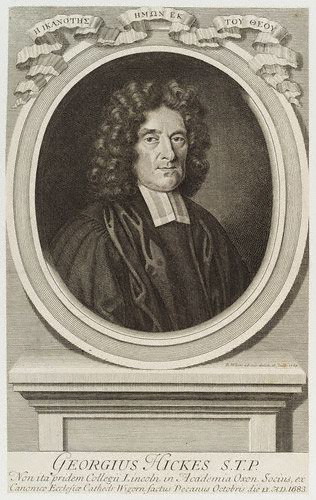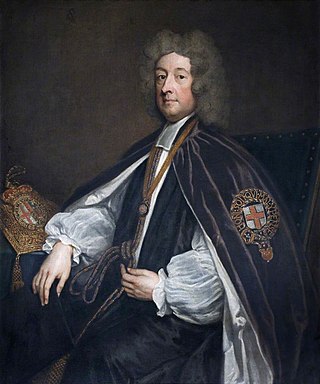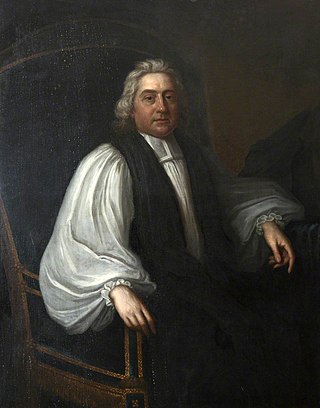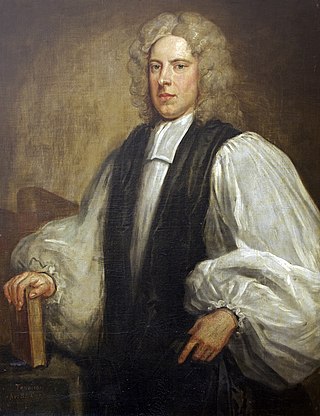This article contains information about the literary events and publications of 1717.

Robert South was an English churchman who was known for his combative preaching and his Latin poetry.

George Hickes was an English divine and scholar.

Benjamin Hoadly was an English clergyman, who was successively Bishop of Bangor, of Hereford, of Salisbury, and finally of Winchester. He is best known as the initiator of the Bangorian Controversy.

William Talbot was an English Anglican bishop. He was Bishop of Oxford from 1699 to 1715, Bishop of Salisbury from 1715 to 1722 and Bishop of Durham from 1722 to 1730.

White Kennett was an English bishop and antiquarian. He was educated at Westminster School and at St Edmund Hall, Oxford, where, while an undergraduate, he published several translations of Latin works, including Erasmus' In Praise of Folly.
The Reverend Thomas Pyle was a Church of England clergyman and religious controversialist.

Ofspring Blackall, Bishop of Exeter and religious controversialist, was born in London.

John Hoadly was an Anglican divine in the Church of Ireland. He served as Bishop of Ferns and Leighlin, as Archbishop of Dublin, and as Archbishop of Armagh from 1742 until his death.
Francis Hare (1671–1740) was an English churchman and classical scholar, bishop of St Asaph from 1727 and bishop of Chichester from 1731.
Arthur Ashley Sykes (1684–1756) was an Anglican religious writer, known as an inveterate controversialist. Sykes was a latitudinarian of the school of Benjamin Hoadly, and a friend and student of Isaac Newton.
Thomas Brett (1667–1743) was an English nonjuring clergyman known as an author.
Roger Laurence (1670–1736) was an English nonjuring priest and controversialist.
The Socinian controversy in the Church of England was a theological argument on christology carried out by English theologians for around a decade from 1687. Positions that had remained largely dormant since the death in 1662 of John Biddle, an early Unitarian, were revived and discussed, in pamphlet literature.
Thomas Herne was an English academic and lay participant in religious controversy.

Edward Tenison (1673–1735) was an English bishop of Ossory. An example of the workings of the system of patronage in the Church of England, Tenison also was a significant Whig and controversialist.
John Rogers (1679–1729) was an English clergyman.

Andrew Snape (1675–1742) was an English cleric, academic and headmaster, provost of King's College, Cambridge, from 1719.

Joseph Smith (1670–1756) was an English churchman and academic, Provost of The Queen's College, Oxford, from 1730.










